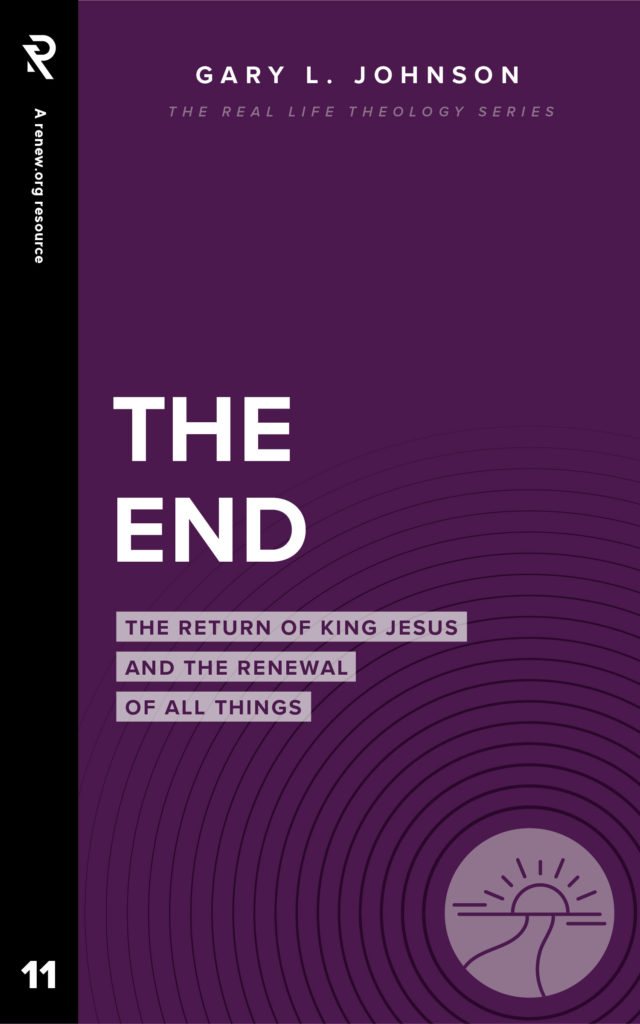
If God Is Love, Hell Is Real.
Is hell real? Jesus taught about hell as a real reality for those who persistently reject God. It is a place of separation from God, originally created by God as a place of punishment for the devil and his angels. Although it has become common to assume that a loving God would not send anyone to hell, the love of God actually points to the reality of hell in a couple ways.
I do not enjoy thinking about hell. Or talking about it. Or writing about it. Or even believing in it.
But whether we think or talk or write about it, it is a fact that people will go there. Put more strongly, the less we talk about it, the more likely people will end up there. So, frankly put, it’s better for us to absorb the temporary discomfort of dealing with a painful topic if that helps people avoid the real thing.
Modern Western culture will not be offering us much help in this task. What we in the church find difficult to think about has become literally unthinkable for our culture. If there is a God, they reason he must be a God of “love,” by which they mean wholehearted affirmation. He’s a cosmic “Facebook like,” a God-sized smiley emoji. This doesn’t mean that our culture has erased judgment or wrath as a category. Far from it. We’ve only swapped job descriptions around. Vengeance is ours.
“If there is a God, they reason he must be a God of ‘love,’ by which they mean wholehearted affirmation.”
Yet our culture’s logic from God’s love is exactly backwards. Starting with God’s love points us to the reality of hell in a couple ways.
Love shows us hell is real because a place of separation is inevitable.
The first way that God’s love points us to the reality of hell is that God’s love makes a place of separation inevitable.
It is because God loves us that God desires our love in return. That’s how love works. As a parent who loves his kid, there are many things you want for your kid. But the number one thing you want from your kid? Love. You can’t help it. That’s how love works. It’s apparently because God loves us and wants us to love him that he made us free. Love can’t be forced, or it’s not love.
“Love can’t be forced, or it’s not love.”
It’s true that if God’s goalpost for us was just our obedience, then he could have created us without this risky ability to make our own moral and eternal choices. But he loves us and therefore made us free. You see where this is going, right? If we are free to choose him, we have to be free to reject him. That’s how freedom works. Hell is where people who reject God are finally and completely free from him.
Love shows us that hell is real because punishment is inescapable.
Second, it is God’s love that shows us that punishment for sin is inescapable.
How has it become universally recognized—even in a godless culture—that God loves us? Do we know God must be a loving God because of what we see in nature? True, there are sunrises, but there are also droughts. There’s rain, but there are also floods. There are breezes, but there are also tornadoes. There is oxygen, but also wildfires.
How do we know that God is love? Is that the teaching of all the religions? Hardly. When we look at the major world religions, we see that one god commissions the caste system; another god tries to tempt Gautama away from achieving enlightenment; another “loveth not transgressors.”[1]
How do we know God is love? Ultimately, it’s because of the cross. But how do we know that the cross is love and not just a tragedy? It’s because it was at the cross that Jesus took the punishment for our sins. We know the cross is love because the cross was Jesus taking upon himself the wrath we deserved.
“How do we know God is love? Ultimately, it’s because of the cross.”
Facing wrath against sin was fearsome to Jesus (Matt. 26:39), but it was inevitable—otherwise God would have given Jesus a different answer in the Garden of Gethsemane. And if Jesus’ sacrifice automatically saved everyone from their sins whether they believed in him or not, then it’s difficult to understand the urgency for evangelism we see in the New Testament.
Hell is real even though it feels like a mismatch
In other words, hell makes sense. But it also makes our hearts hurt and heads spin. It doesn’t make sense, for example, that there should be such a mismatch between a lifetime of making bad choices and an eternity in hell.
But it’s important to be honest that hell in the New Testament isn’t as simplified as one metaphor might paint it. There are numerous metaphors for hell, and even Jesus’ preferred word for hell was based on a metaphoric comparison. He used the word “gehenna” which referred to the dump outside the city which had once been the site of child sacrifice.
“Hell in the New Testament isn’t as simplified as one metaphor might paint it.”
Final punishment is repaid based on a person’s works (Rom. 2:6), and it is not portrayed as being one-size-fits-all (Matt. 11:21-22). The final judge is someone we know well and have come to trust completely (John 5:22). Jesus has proven over and over that we can trust him, and so we can trust him to do what’s right in this area as well.
Hell is real because without hell…
There are days it would be nice to be able to reimagine Christianity without hell. But the truth is, without hell…
1) Without hell, God is not just.
This one might mean a lot or not much depending on what season of history you are living through. When people experience serious injustice, they appreciate that God is a God of justice. For the persecuted church written to the book of Revelation, for example, it meant a ton that there will be justice at last.
2) Without hell, we are not free.
Hell is a logical conclusion from two truths: 1) God offers you and me salvation, and 2) God gives us freedom to accept or reject Him. There must be a place for those who don’t love God. As C.S. Lewis put it, “There are only two kinds of people in the end: those who say to God, “Thy will be done,” and those to whom God says, in the end, “Thy will be done.”[2]
3) Without hell, Jesus is not truthful.
In Luke 12:5, Jesus said, “I will show you whom you should fear: Fear him who, after your body has been killed, has authority to throw you into hell. Yes, I tell you, fear him.” Enough said.
4) Without hell, salvation is not necessary.
If there’s no hell, then why the urgency to remain on the narrow path and reject the wide path “that leads to destruction” (Matt. 7:13)? Why the urgency to get right with God before the “day of judgment” (Matt. 10:15)? Why the urgency to believe in Jesus since “anyone who does not believe is already condemned” (John 3:18)? In other words, why such urgency to be separated and saved if everyone ends up at the same place?
5) Without hell, heaven is not heaven.
A lot of people don’t want God in their lives now, let alone His undimmed presence throughout eternity. They don’t love God. And if heaven were a place for both 1) those who love God, and 2) those who hate God, wouldn’t heaven stop being heaven?
[1] Sura 2:190.
[2] C.S. Lewis, The Great Divorce (San Francisco: HarperSanFrancisco, 2001), 75.









